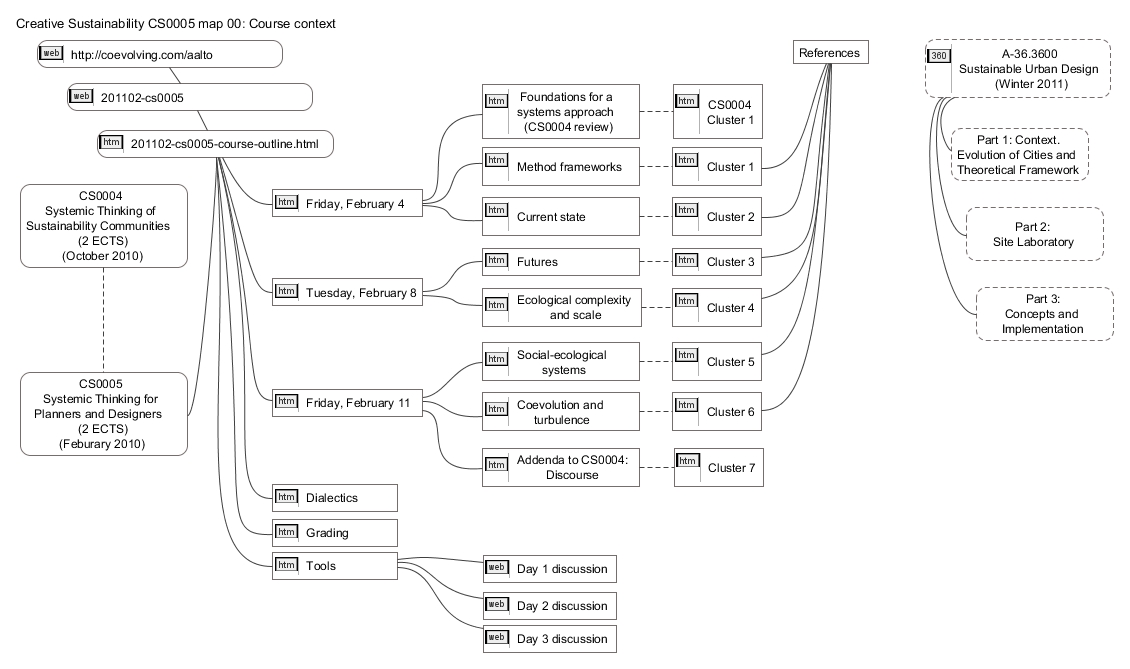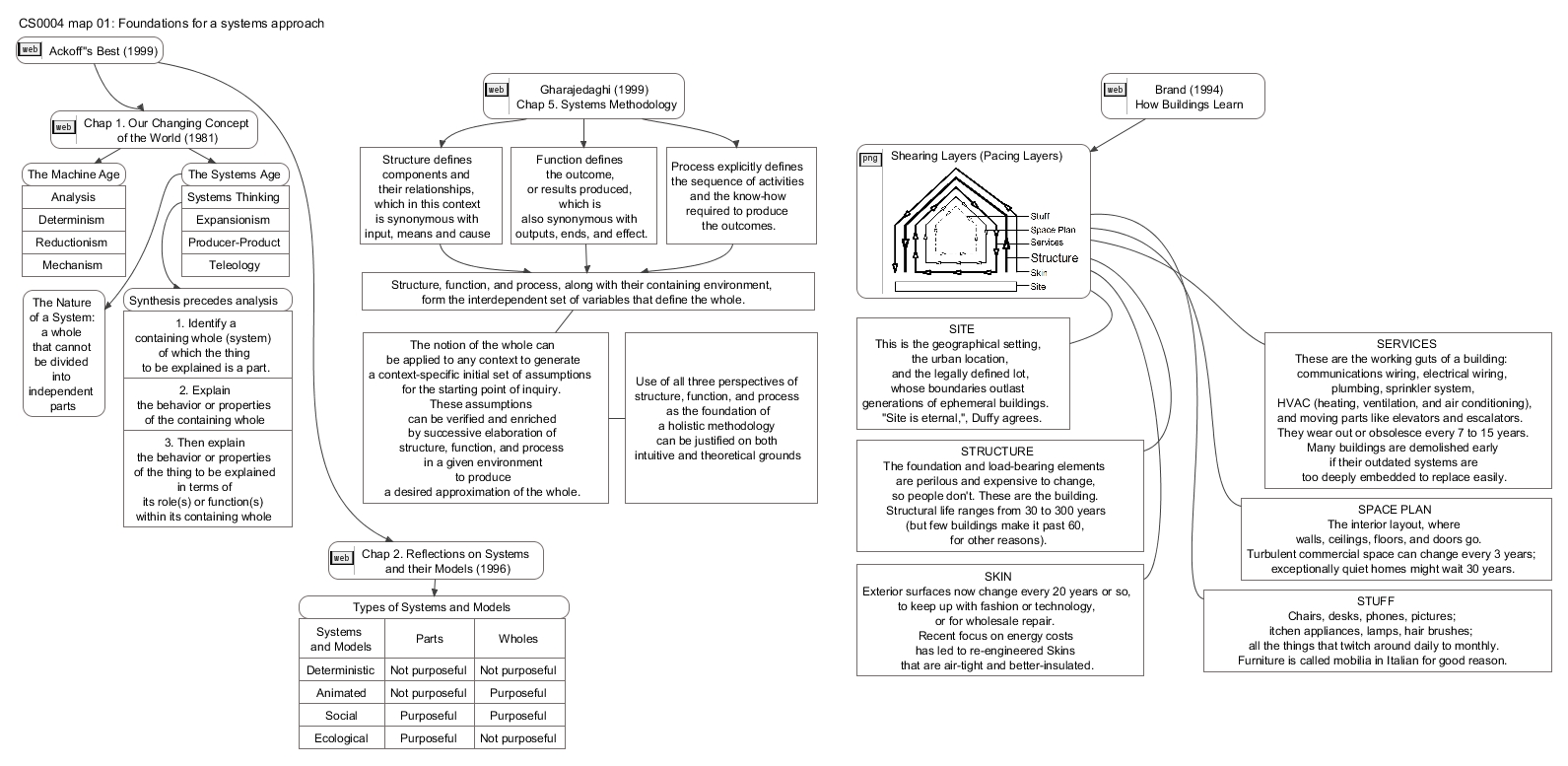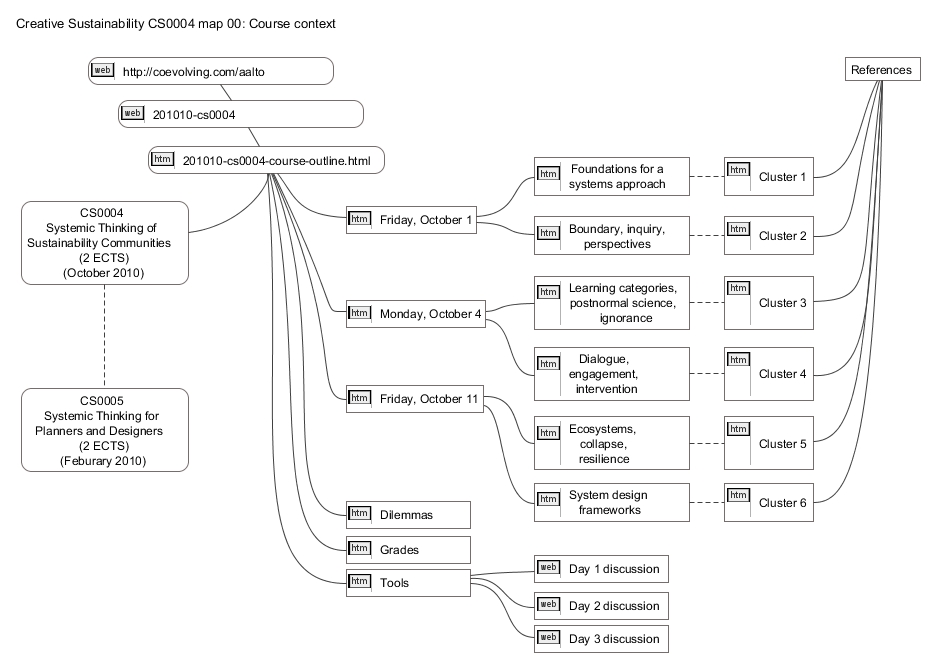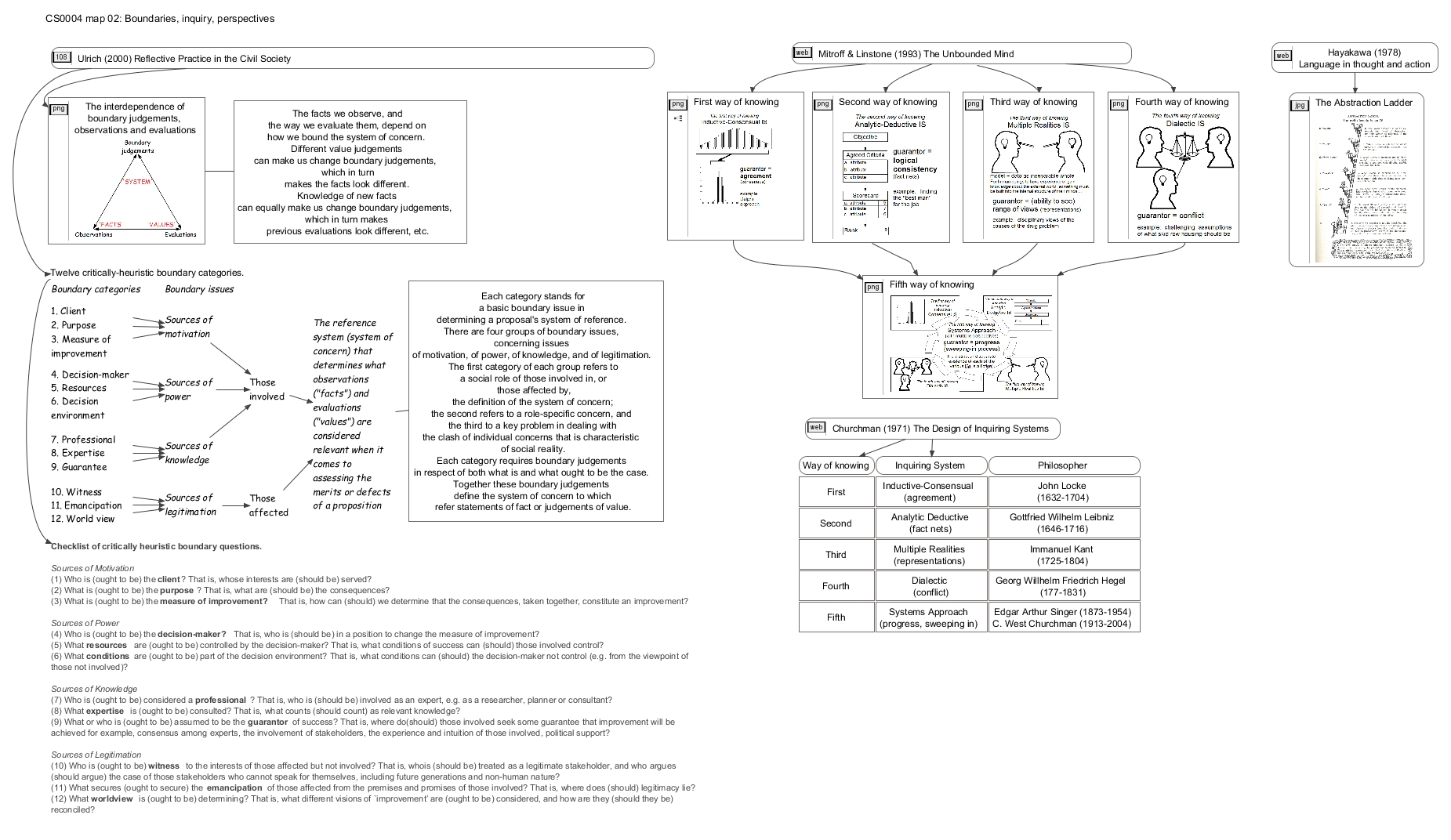In February, I returned to Finland to teach the Systemic Thinking for Planners and Designers CS0005 course in the master’s program in Creative Sustainability at Aalto University. I had previously blogged about teaching and learning from the Systemic Thinking for Sustainable Communities CS0004 course in October. The February course was again intensive, this time on a Friday-Tuesday-Friday schedule.
All of the course content is available as open source in a directory at http://coevolving.com/aalto/201102-cs0005/ . Here’s a map outlining the course.
The style of the classes again centered on a list of references from which students could select according to personal interests, supplemented by lectures outlined with context maps. The course outline was provided as long form text that evolved online during the week. Written responses from students were most frequently posted on public blogs, with notifications and responses on the Systemicists Forum on the Systems Community of Inquiry, with separate threads for Day 1, Day 2, Day 3, and the final essays.
The first lecture for CS0005 was a quick review of the first topic for CS0004 in October, foundations for a systems approach. This turned out to be a worthwhile activity, as the students (and my co-instructors!) had mulled over the basic ideas of systems for four months, resulting in more reflection and questions than I was expecting.
This background in the first lecture continued with a discussion of method frameworks.
In February, I returned to Finland to teach the Systemic Thinking for Planners and Designers CS0005 course in the master’s program in Creative Sustainability at Aalto University. I had previously blogged about teaching and learning from the Systemic Thinking for Sustainable Communities CS0004 course in October. The February course was again intensive, this time on a Friday-Tuesday-Friday schedule.
All of the course content is available as open source in a directory at http://coevolving.com/aalto/201102-cs0005/ . Here’s a map outlining the course.
The style of the classes again centered on a list of references from which students could select according to personal interests, supplemented by lectures outlined with context maps. The course outline was provided as long form text that evolved online during the week. Written responses from students were most frequently posted on public blogs, with notifications and responses on the Systemicists Forum on the Systems Community of Inquiry, with separate threads for Day 1, Day 2, Day 3, and the final essays.
The first lecture for CS0005 was a quick review of the first topic for CS0004 in October, foundations for a systems approach. This turned out to be a worthwhile activity, as the students (and my co-instructors!) had mulled over the basic ideas of systems for four months, resulting in more reflection and questions than I was expecting.
This background in the first lecture continued with a discussion of method frameworks.






